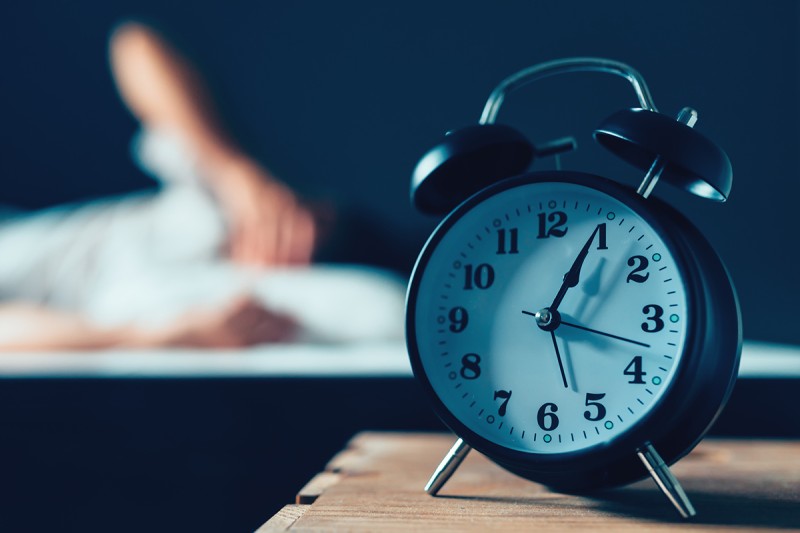
Insomnia is a common problem for people with cancer. Studies suggest that sleep disturbances affect between 30 to 50% of current and former cancer patients. These difficulties can persist for several years after treatment ends.
Chronic insomnia is related to other serious health problems, including depression, anxiety, pain, fatigue, and cognitive impairment. Sleep issues also afflict caregivers and family members as they go through the stressful experience of cancer along with their loved ones.
Despite the scope of this problem, both people with cancer and doctors often discount insomnia. Doctors are focused primarily on controlling or curing the cancer. Patients may feel it is an unavoidable part of the disease or side effect of treatment and be reluctant to bring it up.
We spoke with Kelly Shaffer, a clinical psychologist and research fellow at the Memorial Sloan Kettering Counseling Center, to learn more about how people with cancer can combat insomnia.
When and Where to Seek Help
Dr. Shaffer encourages patients and caregivers to seek help as soon as insomnia becomes a noticeable problem. It is a treatable condition, but it can become chronic over time. “People can get into bad habits around sleep and then your bed is not a place of rest and relaxation anymore — it’s like a battlefield,” she says.
MSK offers a variety of effective treatments to alleviate insomnia in this population. “There is no need to struggle and suffer through it alone,” Dr. Shaffer says.
Treatments that can address insomnia directly include cognitive behavioral therapy for insomnia (CBT-I), acupuncture, relaxation techniques, and medication. “There are multiple treatment avenues available for people based on what they think is going to fit best with their lifestyle,” she says.
Cognitive Behavioral Therapy: Being the Boss of Your Bed
Dr. Shaffer and colleagues at the Counseling Center offer cognitive behavioral therapy for insomnia as a first-line, short-term treatment. Over approximately seven weekly sessions, they help people to “train their brains” for better sleep habits. A critical part of this treatment is that people keep a sleep diary to document when they go to bed and wake up, both in the morning and throughout the night.
“We’re trying to match a person’s time in bed with the time they are actually able to sleep, so they are not just lying there becoming more anxious,” she says.
If someone doesn’t fall asleep within about 20 minutes, they are encouraged to get out of bed and do something relaxing, such as reading or listening to music, until they feel sleepy again. They are discouraged from doing other things in bed like using a computer or watching television. In addition, people are directed to keep a regular sleep schedule, going to bed and getting up at the same time.
This sounds deceptively simple, but Dr. Shaffer says CBT-I works. “This form of behavior therapy is highly effective, well-tested, and well-tolerated,” she says. “One great advantage of CBT-I is people can take the skills they learn from working with the counselor and apply them later if they need them again.”
Relaxation Techniques and Acupuncture
Behavioral change may not work for some people. “I’ve worked with people for whom changes in their lifestyle or daily habits either were not feasible or not appealing to them,” Dr. Shaffer says. “They don’t want to log their sleep, or they are too busy with childcare or family obligations.”
MSK’s Integrative Medicine Service offers complementary therapies, including classes that teach relaxation techniques such as meditation and yoga. Another treatment shown to be effective is acupuncture. It uses ultra-thin needles applied to specific points on the body to stimulate the nervous system, releasing certain chemicals in the brain.
Medications to Aid Sleep
Some people with insomnia may find that behavioral change or alternative therapies are ineffective or just not right for them. They can talk with their doctor about whether it would be appropriate to take drugs to help them fall or stay asleep. For MSK patients, psychiatrists at the Counseling Center can work with people who may need drugs for their insomnia.
It’s important for people to take these medications under the supervision of a doctor. Long-term use of sleep drugs may pose the risk of side effects, dependence, and drug interactions. Even for over-the-counter drugs, patients and caregivers should check with the physician to make sure there are no serious concerns about taking them.
Regardless of which approach people take, says Dr. Shaffer, it’s better to address insomnia than hope it simply goes away. This is especially true for those who have completed treatment and are entering survivorship.
“I enjoy helping patients with insomnia because it can have such a big effect,” she says. “So many symptoms are closely tied together — depression, pain, fatigue, sleep. When we meaningfully shift the needle on sleep for people, you can see a dramatic improvement in their quality of life.”




